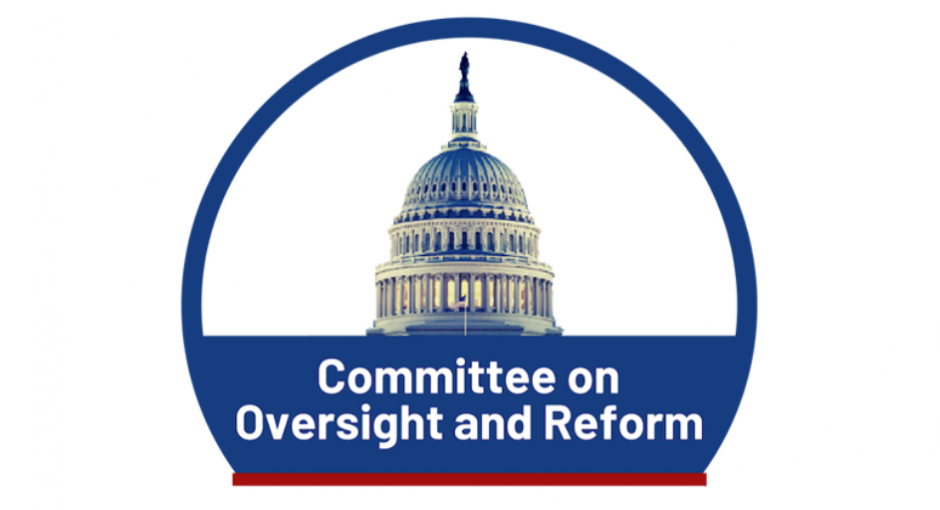The U.S. House Oversight and Reform Committee issued a blistering report late last week accusing brand pharmaceutical manufacturers of systematically jacking up prices on their drugs in the United States.
Pharmaceutical Research and Manufacturers of America (PhRMA) called it a “misleading report [that] fails to address abusive practices by insurance companies and middlemen.” The committee’s Republican minority issued a short opposing report on pharmacy benefit managers’ (PBM) role in rising prescription drug costs.
The committee launched its investigation of drug industry pricing and business practices in January 2019. It held five hearings and released eight interim staff reports before releasing the 269-page final report last Friday. Six of the interim reports examined the conduct of AbbVie, Amgen, Celgene, Mallinckrodt, Novartis, and Teva.
Although the final report does not mention the 340B program, companies the committee investigated are involved in major 340B policy disputes.
Insulin manufacturer Novartis and biopharmaceutical company Amgen are among the 10 drug makers imposing conditions on 340B pricing when contract pharmacies dispense medicines to patients.
Celgene (purchased by Bristol Meyers Squibb in 2019) makes the myeloma drug Revlimid. A whistleblower’s claim that Celgene limits Revlimid’s distribution to avoid paying the 340B ceiling price was the focus of a six-part 340B Report investigation last June.
The committee found that pharmaceutical companies raised the prices of branded drugs by 36% between 2016 and 2020, nearly quadruple the annual inflation rate. Manufacturers raised prices for the 20 most-prescribed brand drugs in the Medicare Part D program by more than 12% a year between 2012 and 2017—about 10 times the average annual rate of inflation during those years.
Some drugs examined by the committee—particularly those taken by a large patient population—saw their prices rise even more. Twelve drugs—including leukemia drug Gleevec, arthritis drug Embrel, and immunosuppressive drug Humira—had their prices increase on average more than 20 times apiece since launch or acquisition. The committee said the median price increase of the dozen drugs it investigated is almost 500% since they were launched.
Mallinckrodt acquired Acthar—a gel to treat relapsing multiple sclerosis and other diseases—in 2014 and raised its price more than 100,000%, the committee found. It said the dozen drugs it studied generated more than a combined $230 billion in U.S. net revenue from 2014 to 2019, including $38.5 billion in revenue in 2019 alone. In 2020, just three of the drugs examined— Humira, Enbrel, and Revlimid—comprised 8.2% of total prescription drug expenditures in the United States, the committee said.
The report also excoriated drug company patent and marketing exclusivity abuses, abuse of the Orphan Drug Act, tactics to block generics and biosimilars, direct-to-consumer advertising and physician influence campaigns, and “shadow pricing”—price increases in lockstep by competing companies.
The report criticized executive compensation structures that provide incentives to raise prices. It observed, “Former Celgene CEO Mark Alles received more than $500,000 in bonus payments in 2016 and 2017 solely attributable to the company’s price increases for the cancer drug Revlimid.”
“What the committee has learned should be troubling to lawmakers, taxpayers, and any American who has ever struggled to afford their prescriptions,” Oversight and Reform Chair Carolyn Maloney (D-N.Y.), wrote in her official letter to the committee’s members announcing the report. “Drug companies have raised prices relentlessly for decades while manipulating the patent system and other laws to delay competition from lower-priced generics. These companies have specifically targeted the U.S. market for higher prices, even while cutting prices in other countries, because weaknesses in our healthcare system have allowed them to get away with outrageous prices and anticompetitive conduct.”
“The result of the House Oversight Committee investigation is clear: American families are suffering from outrageous drug prices, while big pharma rakes in record profits,” said House Speaker Nancy Pelosi (D-Calif.).


